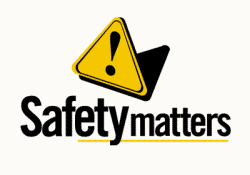
Whether your small trucking business is sailing smoothly, treading water or moving against a strong tide during these tough economic times, having a reliable collection strategy is key to maintaining enough cash flow to remain solvent.
By taking a few measured steps, you can create a streamlined collection process to help boost your business' cash flow and alleviate concerns about how to handle late payments.
Consider these tips when developing your collection strategy:
- Create a tracking system. Develop a payment-tracking system that alerts you of overdue payments. The sooner you're aware of late payments, the sooner you can take action. Consider utilizing software specifically designed to track payments or consult your banker or financial advisor for suggestions about how to get started.
- Follow strict protocol for missed payments. With your tracking system in place, create a contract delineating clear payment guidelines so there is no room for client misinterpretations. Ask your clients to sign the agreement before providing your products or services. Have a letter outlining the consequences of a missed payment ready to mail, and follow up with a phone call to the client in case a payment becomes late. A phone call reinforces the importance of prompt payment and may provide additional insight about why the payment is late.
- Conduct credit checks. When working with a new client, it may be wise to conduct a thorough credit and background check. Consider enlisting the service of a professional credit check company or accessing credible, inexpensive online resources.
- Avoid extended payment terms. Try not to extend payment terms beyond 30 days when the economy is tight. If you have an existing contract that extends beyond 30 days, consider offering a discount for faster payment. Don't extend credit or terms unless you've verified that a customer is in a position to repay.
- Avoid spinning your wheels. If you are not having success with your collection efforts, consider enlisting the help of a collection agency or legal expert.
Consider incorporating the following tools into your collection strategy to facilitate increased cash flow:
Invoice your clients as soon as possible. The faster you can invoice your client, the quicker you can get paid. This is especially true if your client has time-based terms of payment, such as net 14 or net 7, etc. The clock usually starts when the client receives all completed paperwork and invoice. Trip Sheet Central creates an invoice as soon as all load details have been entered into the system thereby giving you the opportunity to submit the invoice as soon as your truck is unloaded.
Direct deposit. To facilitate faster access to funds, consider signing up for direct deposit, ACH transfers or Remote Deposit --a service that enables small businesses to scan deposit checks at their office and electronically transmit them to the bank. Most banks offer this service, and some financial institutions offer software that enhances clients' operating efficiency by integrating directly with their accounting software and enabling them to update their account receivables in one process.
With a reliable and efficient collection strategy in place, you can devote your valuable time to other key elements important to the ongoing success of your business.

